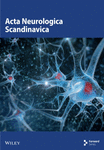Acetylcholinesterase–amyloid-β-peptide interaction and Wnt signaling involvement in Aβ neurotoxicity
Abstract
Previous studies have indicated that acetylcholinesterase (AChE) promotes amyloid-β-peptide (Aβ) fibril formation and AChE-Aβ complexes increase Aβ-dependent neurotoxicity. Here we present evidence for the: i) identification of the AChE motif that promotes amyloid formation, ii) in vivo effect of AChE on brain plaque formation, and iii) connection between AChE-Aβ neurotoxicity and the Wnt signal transduction pathway. Computer modeling, stereotaxic infusions and cell biological techniques were used to study the above problems. Results indicated that a 3.4 kDa AChE peptide promotes Aβ fibril formation. AChE infusion into rat hippocampus determines the appearance of anti-Aβ and thioflavine-S positive plaques, and AChE-Aβ toxicity on hippocampal cultures was blocked by lithium, an activator of the Wnt cascade. We suggest that AChE-Aβ/Aβ dependent neurotoxicity may result in loss of function of Wnt signaling components, and open the possibility that lithium may be considered as a candidate for therapeutic intervention in Alzheimer's disease pathology.




